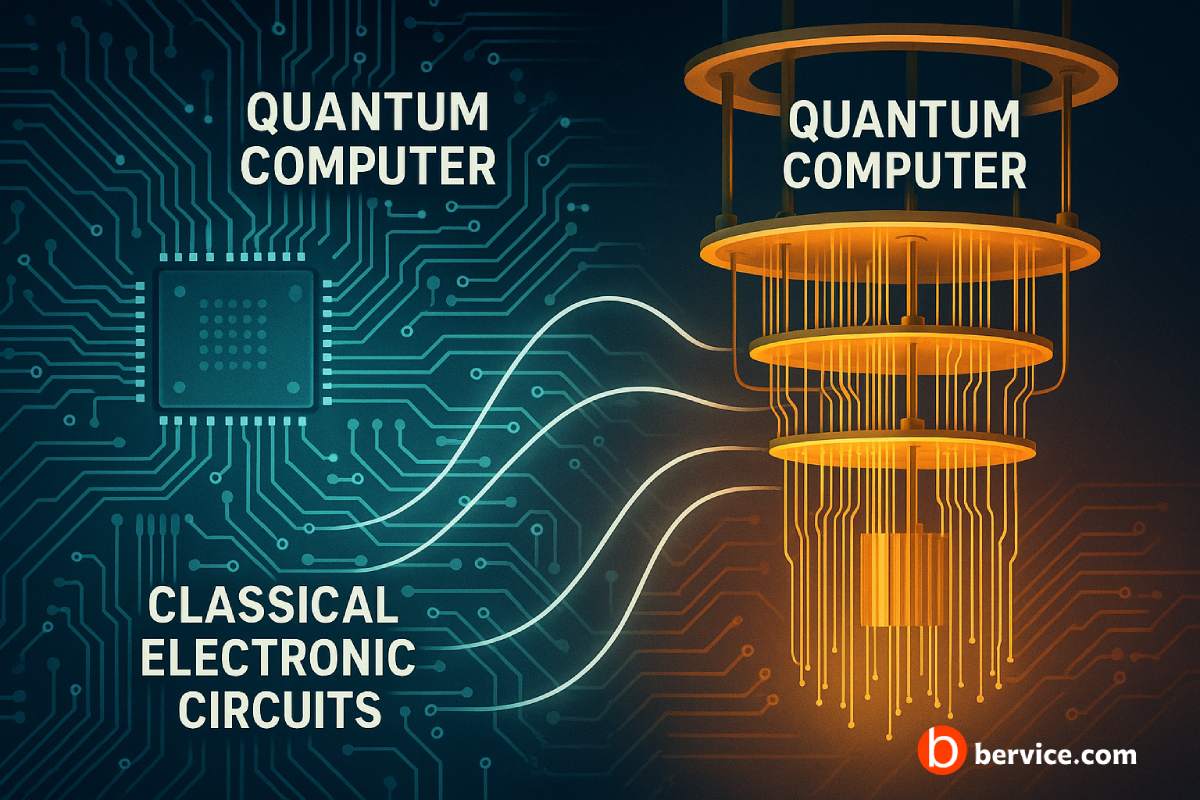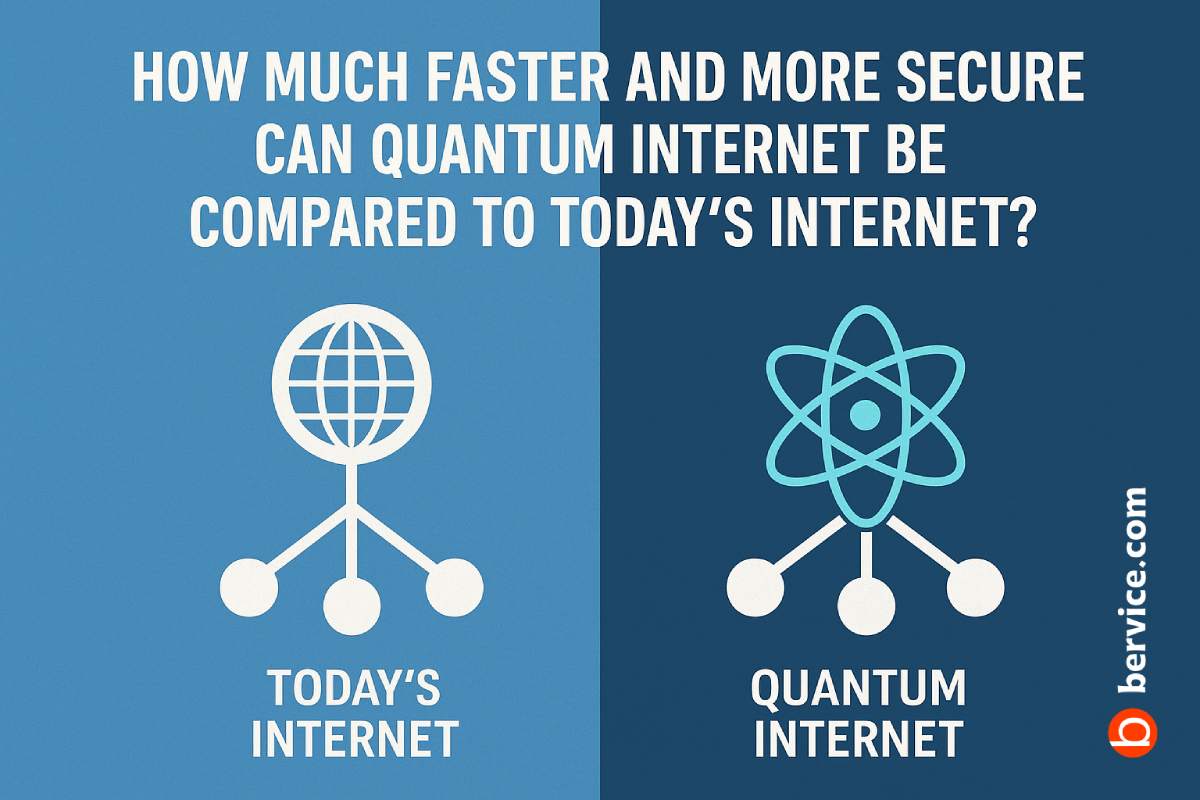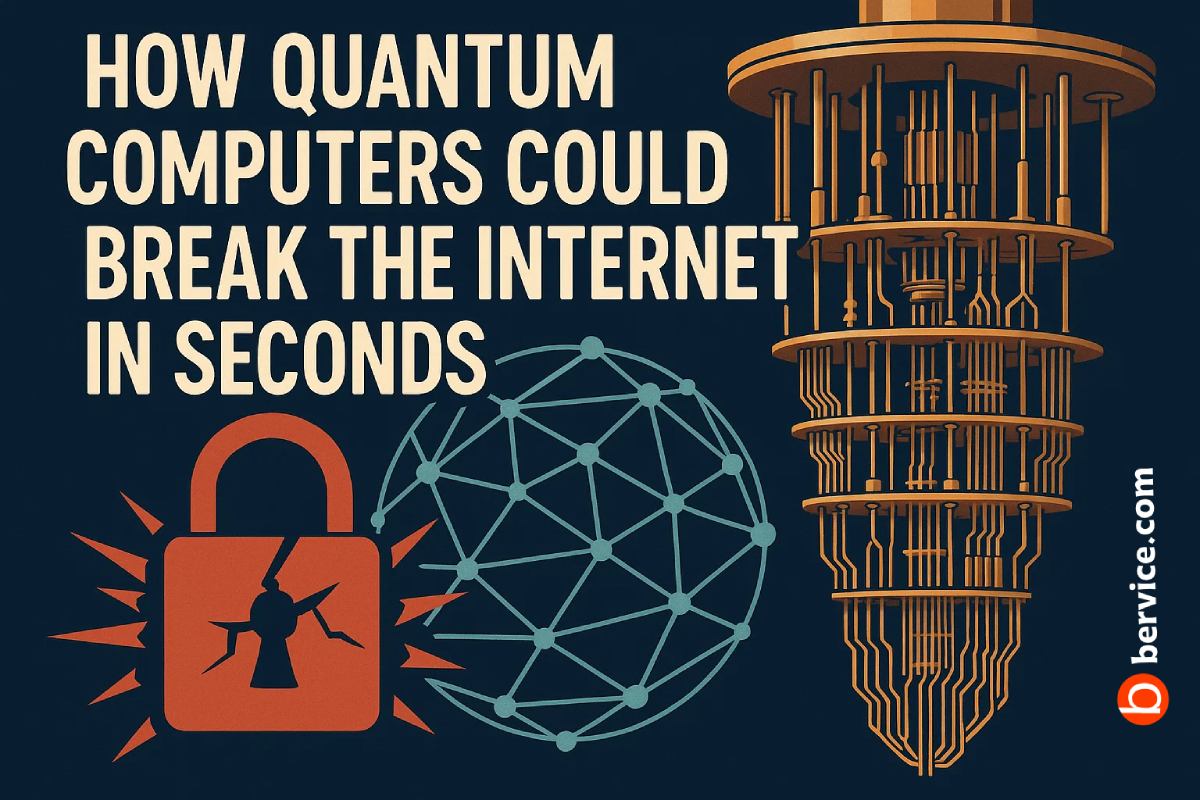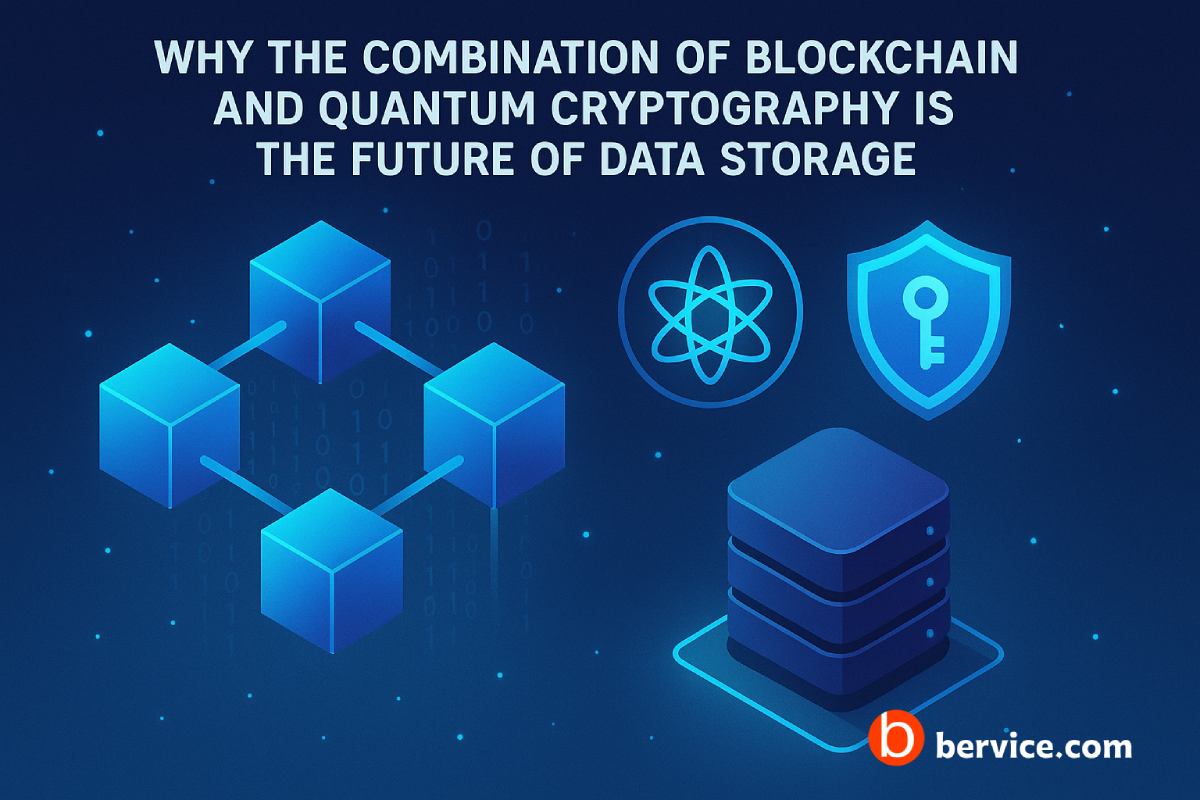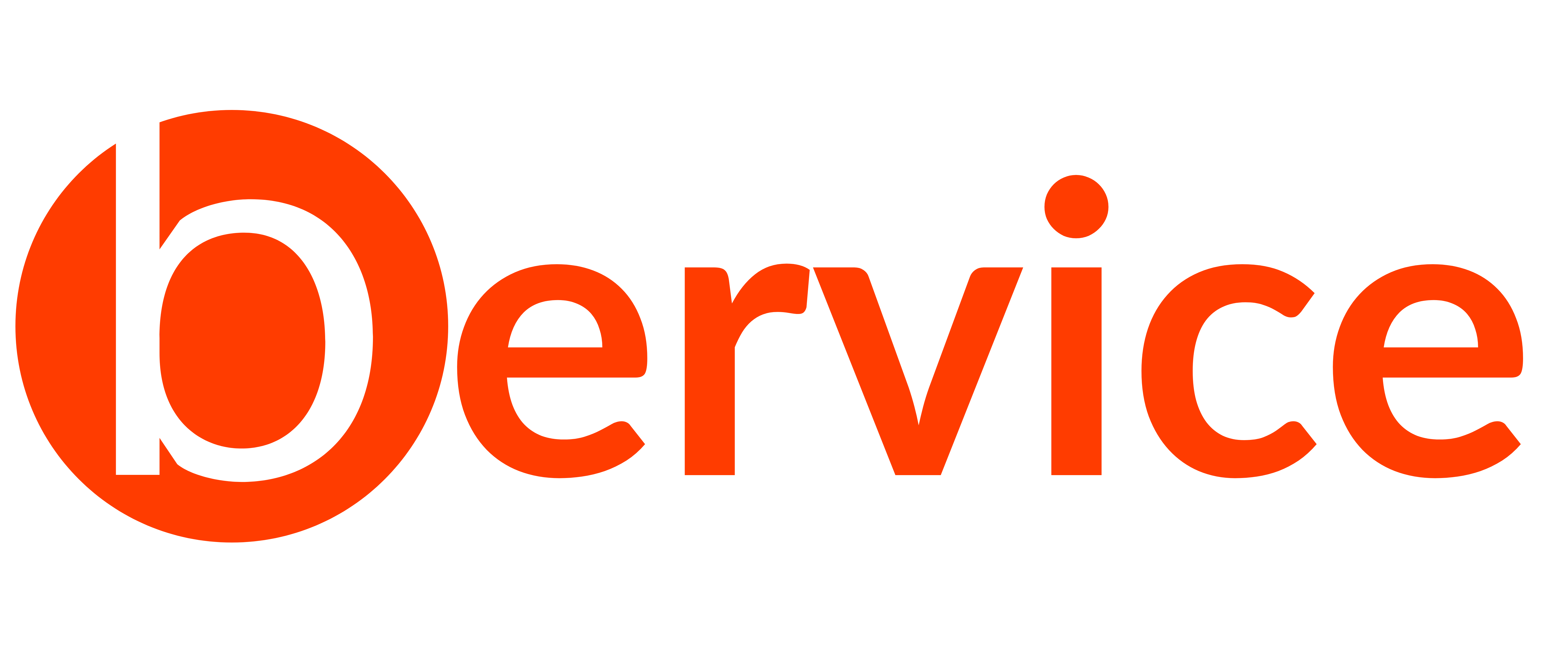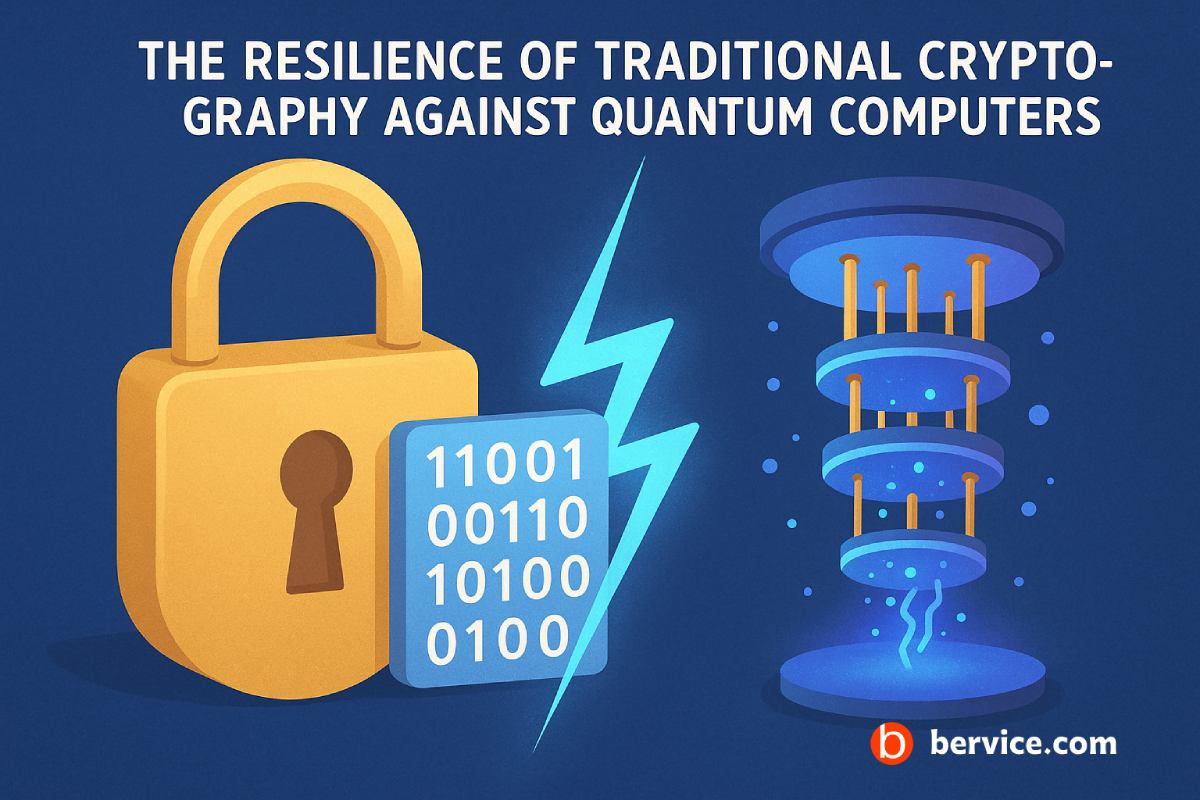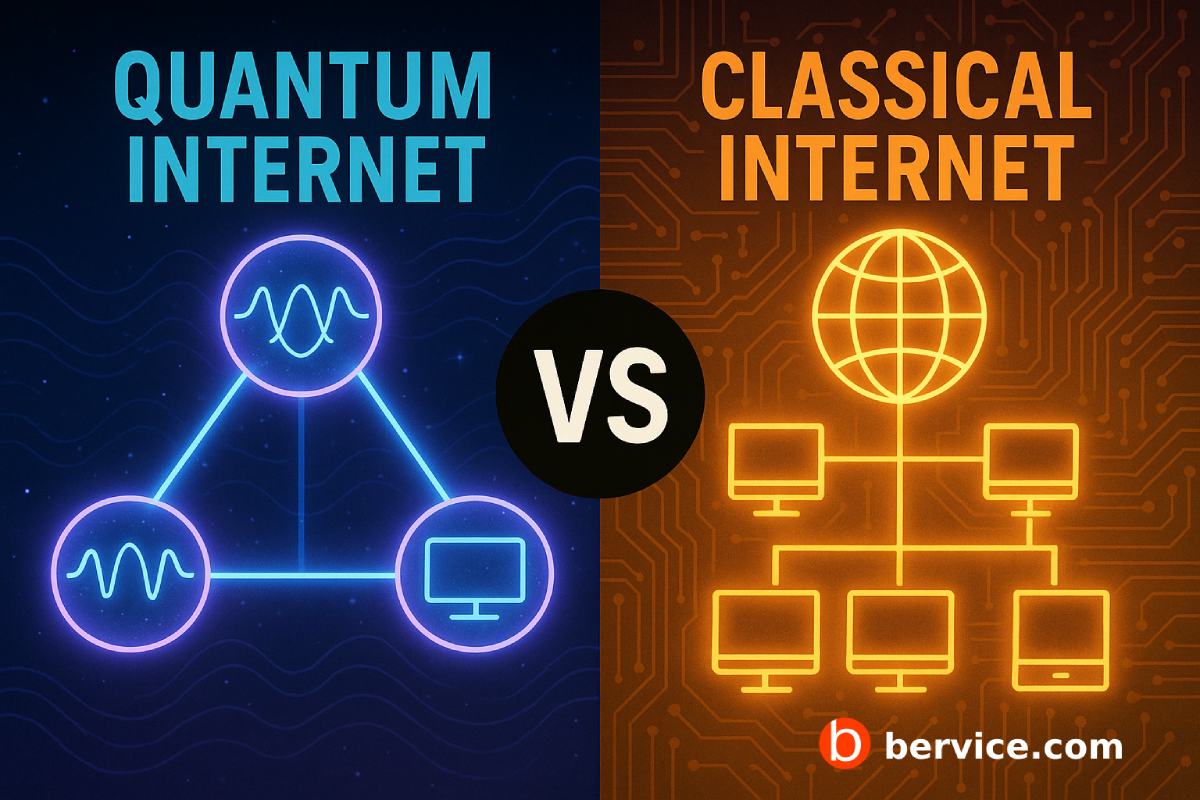
As we stand on the edge of a new technological frontier, the rise of quantum technologies promises to reshape every layer of the digital infrastructure we rely on today. One of the most revolutionary concepts emerging from this space is the Quantum Internet — a secure, ultra-fast network that leverages the laws of quantum mechanics to transmit information. But how exactly does it differ from the classical internet, and what benefits does it offer?
1. What Is the Quantum Internet?
The Quantum Internet is a network that uses quantum entanglement and quantum superposition to enable communication between quantum devices. Unlike the classical internet, which transmits bits (0s and 1s) over fiber optics or wireless signals, quantum internet transmits qubits — quantum bits that can exist in multiple states simultaneously.
These qubits can be transmitted via entangled photons, which allow instantaneous correlations between distant particles, defying classical limitations. This technology could eventually interconnect quantum computers, quantum sensors, and secure communication systems.
2. Core Advantages of the Quantum Internet
✅ Unbreakable Security via Quantum Key Distribution (QKD)
One of the most powerful features of the quantum internet is quantum-secure communication. Using Quantum Key Distribution, users can share encryption keys that are fundamentally immune to interception. If a third party attempts to measure or eavesdrop on a quantum transmission, it irreversibly disturbs the system — alerting both parties and rendering the transmission invalid.
🔐 This offers a level of security unattainable with classical cryptographic protocols, even against future quantum computers.
🚀 Ultra-Fast Data Processing with Entangled Networks
By using entangled particles, quantum networks can coordinate data transmission and processing in ways that drastically reduce latency. While the classical internet is limited by the speed of light and routing bottlenecks, quantum teleportation of data states allows for near-instantaneous synchronization between nodes — critical for real-time quantum computing applications.
3. Key Use Cases and Applications
| Use Case | Quantum Internet Advantage |
|---|---|
| Secure Government Comms | Defense-grade encryption with QKD |
| Financial Transactions | Quantum-secure transfers and authentication |
| Distributed Quantum Computing | High-speed entanglement between quantum processors |
| Healthcare Data Sharing | Fully encrypted patient records across global institutions |
| Scientific Collaboration | Instant, secure exchange of sensitive quantum experimental data |
4. Classical Internet Limitations
While the classical internet has powered the digital age, it is increasingly vulnerable to:
- Cyberattacks and data breaches
- The looming threat of quantum decryption of current cryptography
- Bandwidth bottlenecks in real-time AI, IoT, and sensor networks
- Inability to support quantum systems directly
In contrast, the quantum internet is being developed with these challenges in mind from the ground up.
5. Global Initiatives and Progress
Countries and tech giants are racing to establish early versions of quantum networks:
- China has already demonstrated quantum communication over 1,200 km using satellites.
- The U.S. Department of Energy is building a national quantum internet blueprint.
- Europe is investing heavily through its Quantum Flagship Program.
These initiatives aim to create global quantum-secure backbones in the next decade.
6. Challenges Ahead
Despite its promise, the quantum internet faces several technological and logistical hurdles:
- Fragility of qubits and need for ultra-cold environments
- Photon loss over long distances
- Lack of mature quantum repeaters for signal boosting
Nevertheless, with advancements in quantum memory, entanglement distribution, and error correction, these barriers are being addressed rapidly.
Conclusion: A Paradigm Shift in Connectivity
The quantum internet is not just a faster version of today’s network — it represents a fundamental shift in how information can be transmitted, secured, and processed. With its unprecedented security, instant entanglement-based data transfer, and compatibility with quantum computing, it is poised to become the backbone of the future digital economy.
As we move forward, the transition from classical to quantum internet will likely resemble the leap from dial-up to broadband — only far more profound.
Connect with us : https://linktr.ee/bervice
